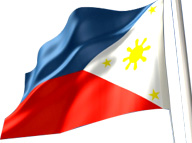MANILA — Instead of using RP, which is the acronym for the Republic of the Philippines, the country is now shifting to initials PH or PHL.
The shift was initiated by the Department of Foreign Affairs (DFA) and its Foreign Service Posts (FSPs) which said that the new initials were in keeping with the International Organization for Standardization (ISO).

Foreign Affairs Secretary Alberto G. Romulo instituted the PH or PHL initials through DFA Department Order No. 16-10 dated October 20 in which the DFA boss directed 67 Philippine Embassies, 23 Consulates General, and four Permanent Missions to use the initials PH or PHL.
Romulo said this is line with the Philippine membership with the ISO, as well as to avoid the ambiguity and confusion with the use of the initials RP.
“The long standing use of the initials RP is not in accordance with ISO codes, leading to ambiguous initials that can also refer to other countries,” the DFA explained in a statement.
The ISO developed the ISO3166-1 codes, assigning two-letter (alpha-2) and three-letter (alpha-3) code to member-countries.
ISO 3166-1 is part of the ISO 3166 standard adopted by the ISO, and defines codes for the names of countries, dependent territories, and special areas of geographical interest. The codes for the Philippines are PH and PHL, respectively.
These codes are used in the Philippines and abroad in airline ticketing, passport issuances, currencies, and internationally-traded shares of stocks, among others.
The DFA office of consular affairs(OCA) adopts and reflects the ISO three-letter codes in the data pages of the Philippine electronic passport.
The ISO standards provide technological, economic, and societal benefits. For businesses, the widespread adoption of international standards means that suppliers can develop and offer products and services meeting specifications that have wide international acceptance in their sectors. For governments, international standards provide the technological and scientific bases underpinning health, safety, and environmental legislation.
The ISO is an international standard-setting body composed of representatives from various national standards organizations.
Founded on February 23, 1947, the organization promulgates worldwide proprietary industrial and commercial standards.
The Philippines is represented in the organization by the Bureau of Product Standards of the Department of Trade and Industry.
Adoption of these initials was recently endorsed by former Ambassador Juan Ona and the DFA Tattlers Group, a group of retired and active Philippine envoys.



 ShareThis
ShareThis